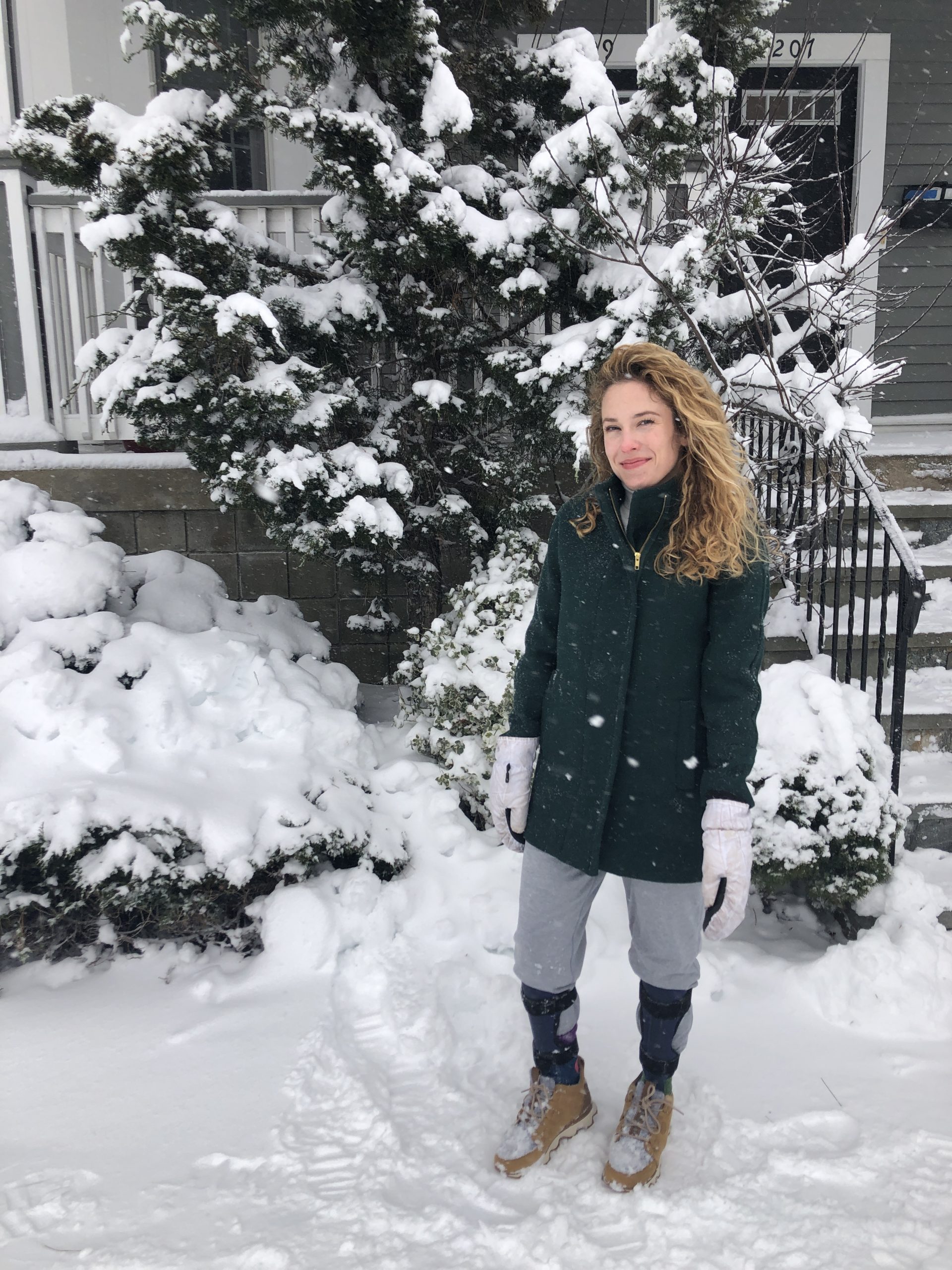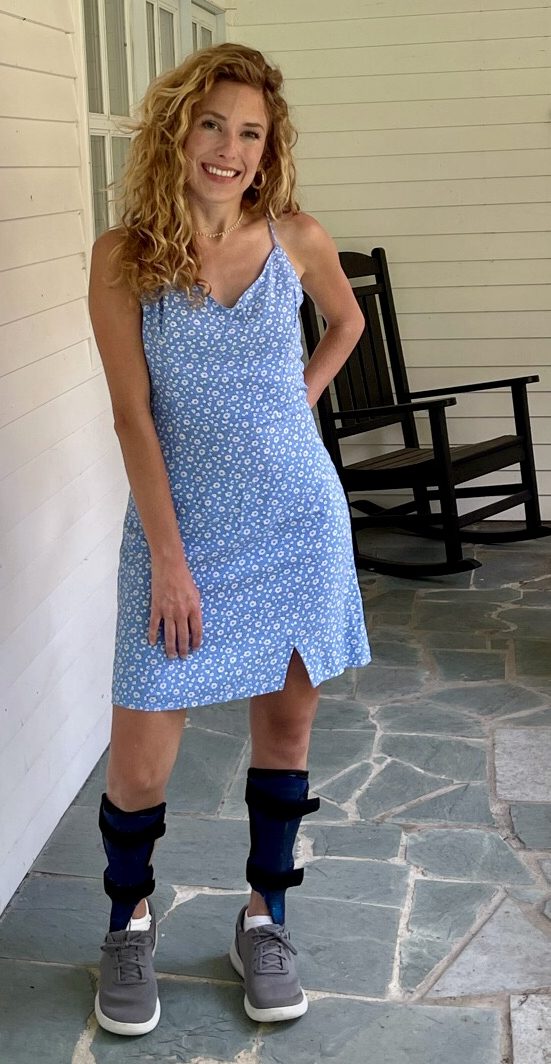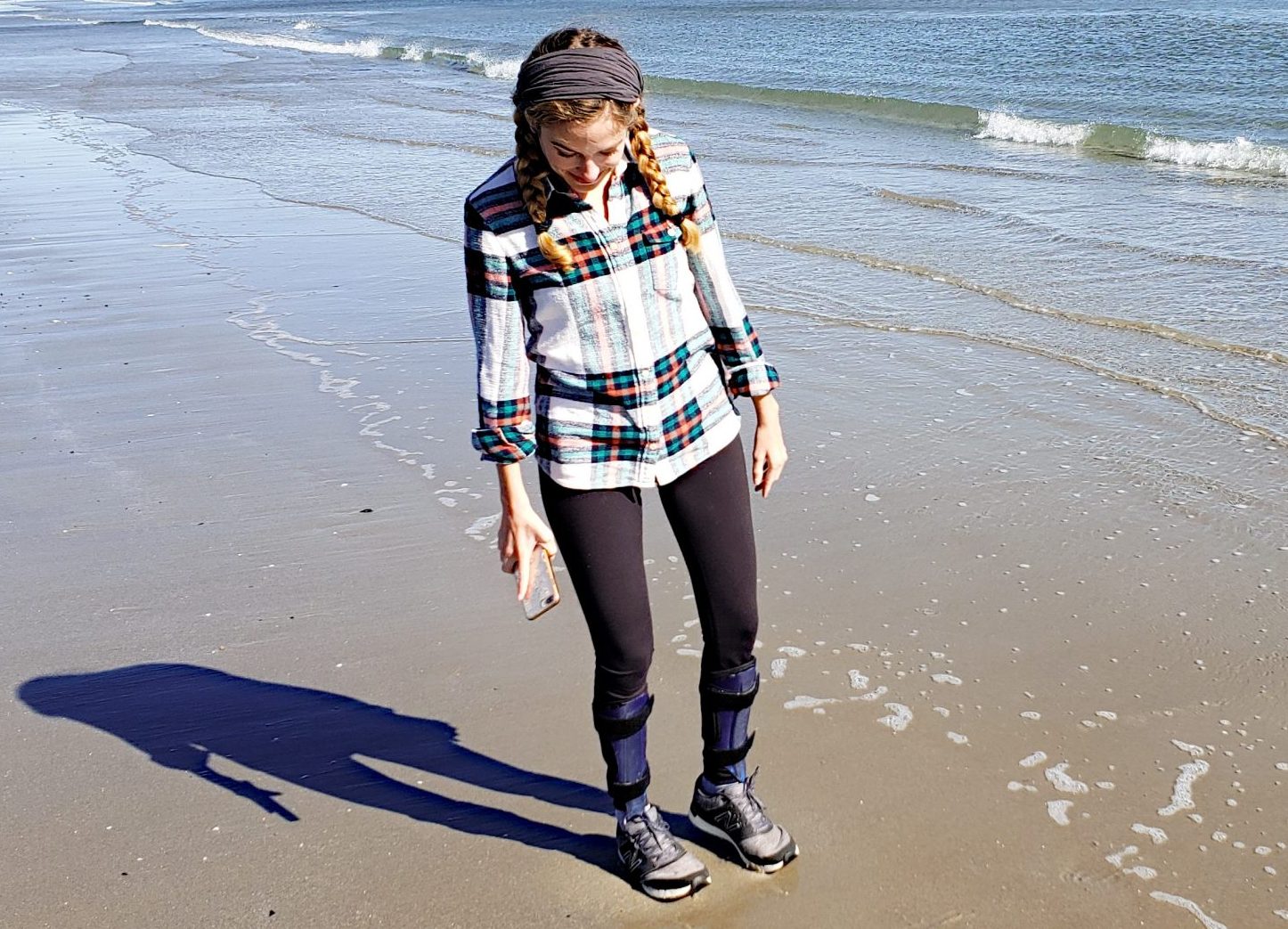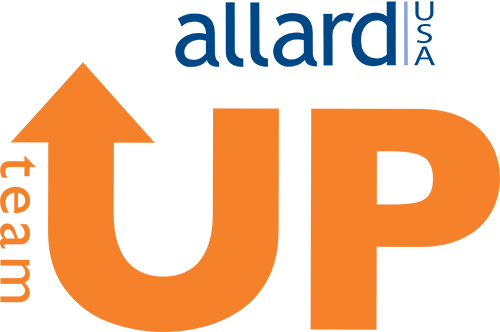
I was in high school the first time a doctor recommended that I consider wearing leg braces. My parents were thrilled about this idea and even ordered me a custom-fit pair that very day at the clinic. As a 15-year-old, I resisted vehemently. I hid the braces away, deep in the darkest corners of my closet and my consciousness, never to be seen or thought of again until many years later.
More than ten years later, in my late twenties, I went to Camp Footprint for the first time. This is a camp for kids with Charcot-Marie-Tooth Disease, and most of the counselors and Admin staff also have CMT. Many of the counselors and campers wear leg braces. They wore them proudly and without shame. And because of the braces, they seemed to be able to walk relatively quickly and sturdily (which is more than I could say about myself).
One of the leaders of the camp (and fellow brace-wearer) approached me one day when we were walking to the pool, and gently said he thought braces would make it easier for me to get around. For the first time, I actually seriously considered the option. The day I got back from camp, I scheduled an appointment with my orthotist. After I tried on the braces and realized how dramatically they improved my ability to walk, I was sold.
Disability pride is a complex idea. My disability has caused a lot of struggle in my life, but it has also led to a lot of beauty, wisdom, compassion, growth, and strength. I am proud of my body for everything it helps me do and for everything it/I have been through. But an equally important part of my journey with pride and disability has been recognizing when I need extra support or assistance, and not feeling ashamed about that.
I used to feel embarrassed and sad about the idea of needing braces. And I will admit that every once and a while, I still feel waves of sadness at the decline of my abilities that necessitated braces in the first place. But re-framing the meaning of my braces has caused a powerful shift in my perspective.
My braces have allowed me to experience things that I wouldn’t have been able to without them: hiking, navigating amusement parks, walking quickly through a mall, dancing the night away comfortably at weddings. My braces, more than anything, have been tools for independence. They have come to symbolize not only expanded ability and more physical possibilities, but also self-acceptance and the rejection of shame that is often (sadly) associated with assistive devices. At the end of each day, I am grateful for my braces that support my body (literally), allow me to access more of the world, and have become symbols of empowerment and shamelessness.
To follow Maddie’s journey with her braces and CMT, follow her on Instagram at @the_homecoming_.


Madeline Jarrett currently lives in the greater Boston area where has just started taking courses in pursuit of a PhD. In her limited spare time, she enjoys painting, drawing, and performing dance videos in her living room. Madeline is very passionate about disability advocacy and educating people about issues like ableism, healthcare, and disability pride.

Recent Comments